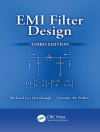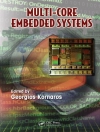This book focuses on solar-energy-based renewable energy systems and discusses the generation of electric power using solar photovoltaics, as well as some new techniques, such as solar towers, for both residential and commercial needs. Such systems have played an important role in the move towards low-emission and sustainable energy sources. The book covers a variety of applications, such as solar water heaters, solar air heaters, solar drying, nanoparticle-based direct absorption solar systems, solar volumetric receivers, solar-based cooling systems, solar-based food processing and cooking, efficient buildings using solar energy, and energy storage for solar thermal systems. Given its breadth of coverage, the book offers a valuable resource for researchers, students, and professionals alike.
Jadual kandungan
1. Distributed Polygeneration Using Solar Energy – A Future Sustainable Energy System.- 2. Integration of Solar Air-Heaters with Pebble Bed Thermal Energy Storage.- 3. Direct Absorption Solar Thermal Technologies.- 4. Solar Updraft Tower – A potential for future renewable power generation: A computational Analysis.- 5. Solar Thermal Energy: Use of Volumetric Absorption in Domestic Applications.- 6. Solar Thermal Energy Storage Using Novel Phase Change Materials.- 7. Effect of Reflector Absorptivity on Radiative Shape Factor/Heat Exchange in Case of Solar Receiver Collection Systems.- 8. Investigating Temperature Distribution of a Solar Cavity-Receiver Wall Using Finite Element Method.- 9. Thermal and materials perspective on the design of open volumetric air receiver for process heat applications.- 10. Solar Assisted Solid Desiccant – Vapor Compression Hybrid Air-Conditioning System.- 11. Solar Food Processing And Cooking Methodologies.- 12. Manufacturing techniques of Perovskite solarcells.- 13. Solar thermal energy storage.- 14. Water-Lithium Bromide Absorption Chillers for Solar Cooling.- 15. Estimation of potential energy savings by algorithm based roller shade control for visual comfort.
Mengenai Pengarang
Dr. Himanshu Tyagi is currently an associate professor of Mechanical Engineering at IIT Ropar. He has previously worked in Siemens (Germany and India) and Intel (USA). He received his Ph D from Arizona State University, master’s from University of Windsor, Canada and his bachelor’s from IIT Delhi. At present he is working with a team to develop nanotechnology-based, clean and sustainable energy sources. Together with his co-authors he received a Best Paper Award at the ASME 2007 Energy Sustainability Conference.
Prof. Avinash K Agarwal joined IIT Kanpur in 2001. His areas of interest are IC engines, combustion, alternative fuels, conventional fuels, optical diagnostics, laser ignition, HCCI, emission and particulate control, and large bore engines. He has published over 230 international journal and conference papers. Prof. Agarwal is a fellow of SAE (2012), ASME (2013), ISEES (2015) and INAE (2015). He has received several awards, including the prestigious Shanti Swarup Bhatnagar Award (2016) in Engineering Sciences, Rajib Goyal prize (2015), NASI-Reliance Industries Platinum Jubilee Award (2012); INAE Silver Jubilee Young Engineer Award (2012); SAE International Ralph R. Teetor Educational Award (2008); INSA Young Scientist Award (2007); UICT Young Scientist Award (2007); and the INAE Young Engineer Award (2005).
Dr. Prodyut Ranjan Chakraborty is currently working as an assistant professor of Mechanical Engineering at IIT Jodhpur. He has previously worked at the German Aerospace Center (DLR) Cologne and the G.E. Global Research Center Bangalore (India). He received his Ph D and master’s from the Department of Mechanical Engineering, IISc Bangalore, and his bachelor’s from North Bengal University. His primary areas of research are numerical modeling of alloy solidification, latent-heat-based energy storage systems for high-temperature applications, thermal management and thermal comfort, and sorption cooling.
Dr. Satvasheel Powar is currently working as an assistant professor at the School of Engineering, IIT Mandi. He has worked at Greatcell Solar S.A. in Switzerland, and G24i in the UK. He received his Ph.D. in Chemistry/Materials Engineering from Monash University, Australia in 2013. Before joining the IIT Mandi, he worked at Nanyang Technological University, Singapore as a postdoctoral research fellow. His primary area of research is new generation solar photovoltaic and solar thermal utilization.












